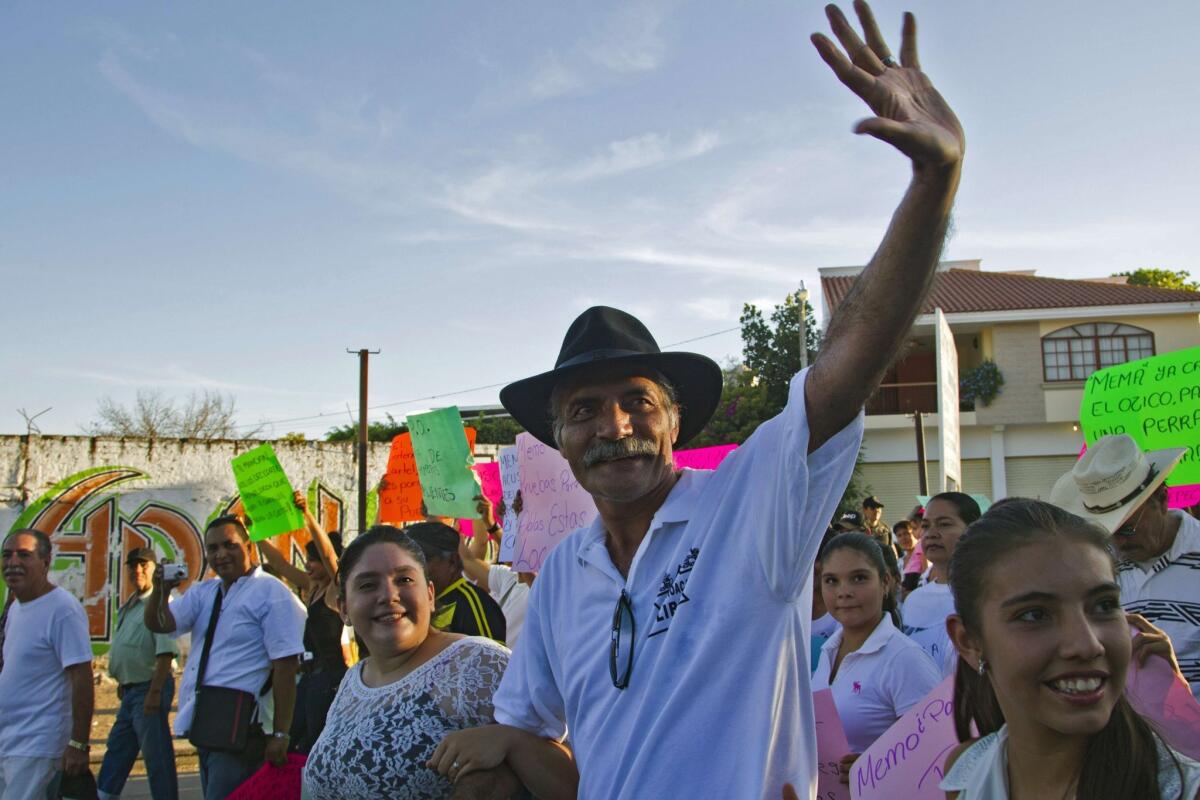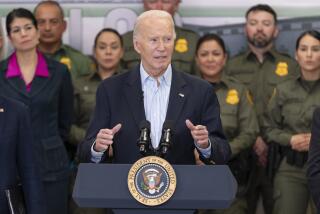Mexican ‘self-defense’ group demands government free prisoners

A top leader of a vigilante “self-defense” group in the western state of Michoacan on Friday gave the Mexican government an ultimatum: free captured members of the movement by May 10 or expect all hell to break loose.
Jose Manuel Mireles said if members are not freed by the deadline, his organization will block towns and roads throughout the state just west of Mexico City. He also reiterated his refusal to obey government orders to lay down weapons.
There may be as many as 100 members in detention, as the government has sought to slowly dismantle the disparate organizations, Mireles said. Protests have included burning public vehicles and tearing down property.
May 10 was initially presented by President Enrique Peña Nieto’s government as the date by which the “self-defense” groups of armed civilians should hand in their guns. Mireles indicated Friday he had turned the tables on the government, in a meeting Thursday, saying there would be no disarmament without the release of prisoners.
And even then, he said, it was essential that the government recognize the vigilantes, who popped up in Michoacan supposedly to counter the Knights Templar, a powerful drug-and-extortion gang, that had all but taken control of the state.
“It is not possible for us to go around unarmed and tranquil, because of the great risk of being hunted down,” Mireles said in a radio interview.
“We have asked the government to legalize the self-defense groups, under that name and independent of any other” local police forces, he added.
Mireles said he and his cohorts had agreed to meet Monday with the government’s point man for Michoacan, Alfredo Castillo.
The spread of vigilantes in Michoacan and other states -- involving citizens who have lost hope that authorities can protect them from drug traffickers, kidnappers and other criminals -- remains the greatest security-policy test of the 16-month-old Peña Nieto government.
Twitter: @TracyKWilkinson
More to Read
Start your day right
Sign up for Essential California for news, features and recommendations from the L.A. Times and beyond in your inbox six days a week.
You may occasionally receive promotional content from the Los Angeles Times.







